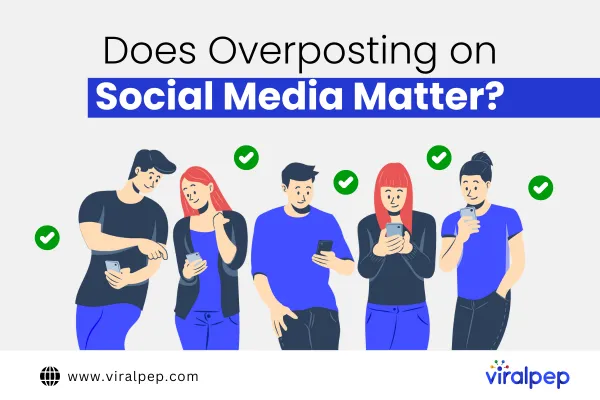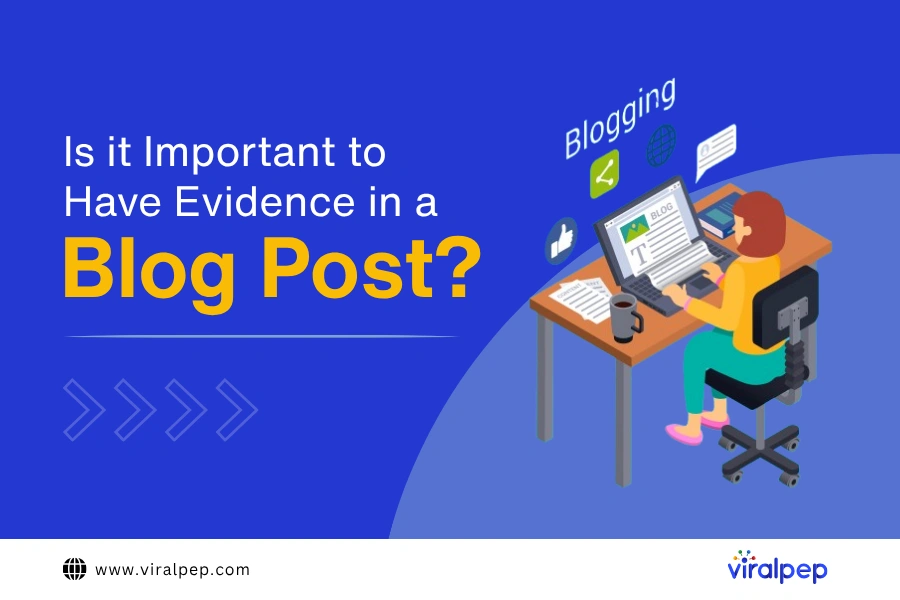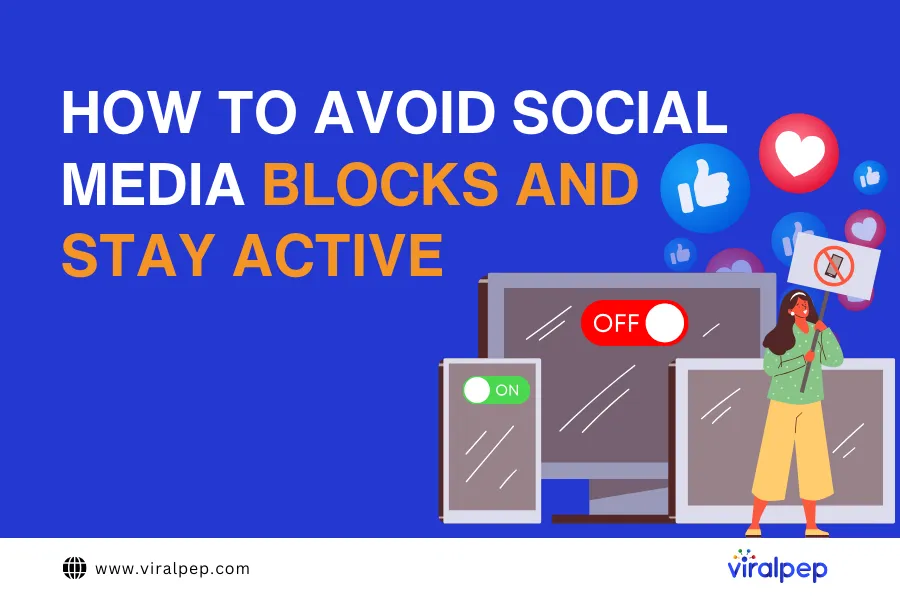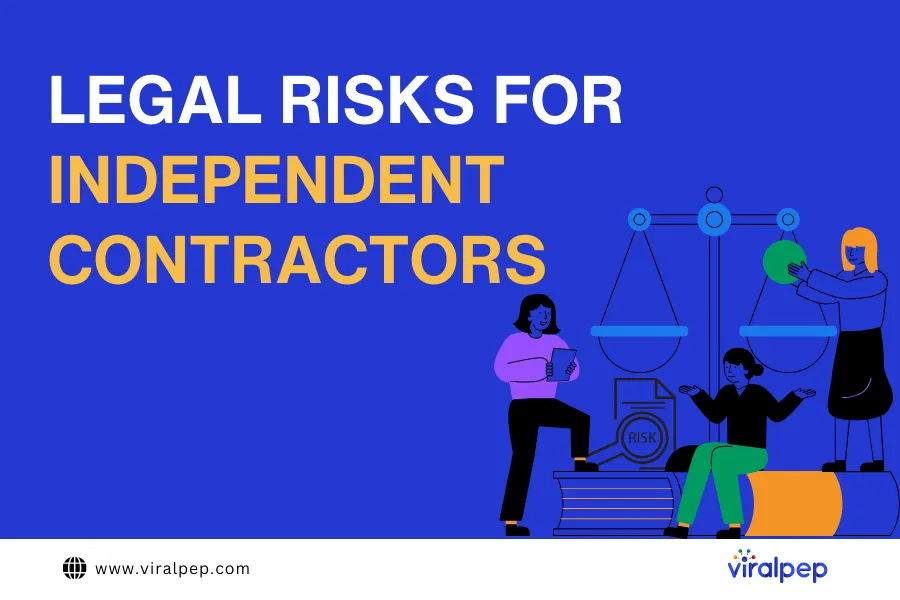In short, the answer is big Yes Overposting on social media matters the most as it can create several issues for you. Whether you are using social media for business or influencing people, overposting in a short period can overwhelm your followers and lead them to some negative sentiments. Also, overposting on social media can cause your users to unfollow or mute your account, as they receive many notifications from your account. If you want to know more about how overposting matters, this article is for you. Here, we will explore everything regarding this title, like its impact, negative consequences, the importance of addressing this issue, signs of overposting, and how to avoid it.
What is Overposting on Social Media?
Overposting on social media can be defined as sharing excessive content on your account in a very short time. Overposting might be good for your profile ranking, as the algorithms can refine new content from your profile, but it can be frustrating for your audience (followers). It is one of the significant problems for new influencers and businesses. They excessively post content, which leads to losing their audience. Have you ever noticed famous brands like Adidas or influencers like Cristiano Ronaldo? They post content once a week or after 3 days because they have a vast audience base they don’t want to lose.
What are the Signs of Overposting on Social Media?
Here are a few indicators of excessive posting on social media sites. 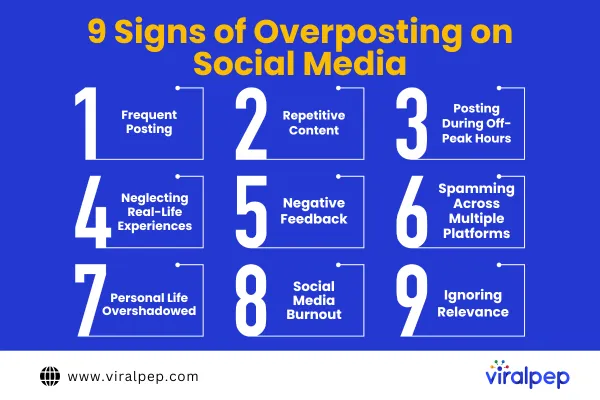
-
Frequent Posting
Frequent posting refers to publishing several updates within a brief duration, resulting in a higher frequency of posts on social accounts. They intend to flood their fans’ feeds with their content until it spills over. Therefore, they post very frequently, even thrice daily, which can frustrate the audience.
-
Repetitive Content
Many repeat the same ideas repeatedly, leading to excessive exposure to uninventive content. Their followers might need help receiving identical posts, images, and messages frequently.
-
Posting During Off-Peak Hours
Posting at odd hours could imply over-posting, which means they need the strategy to understand when their target market is available. For instance, posting at midnight reveals that the publisher is insensitive towards followers at those times.
-
Neglecting Real-Life Experiences
When one decides to go over, they might miss out on some priceless moments crucial in their lifetime. People may need to be more obsessed with documenting their lives on social media to overlook face-to-face encounters and physical happenings.
-
Negative Feedback
People do not like repeatedly being exposed to certain information as it irritates them. Overposting occurs when people begin making derogatory statements or unfollowing one for posting too many updates.
-
Spamming Across Multiple Platforms
It happens that overposters bombard users of different social networking sites with their content, which makes recipients frustrated. Such a step might see people share identical content on various platforms, thus causing a flood in their audience’s feed and probably resulting in annoyance.
-
Personal Life Overshadowed
Posting takes up too many aspects of personal life when it begins overpowering one’s individual life; then we are talking overposting. A case in point is where over-posters place their online presence above their personal life, thus resulting in a disproportion.
-
Social Media Burnout
Burnout may also result from overposting, either the posters themselves or their audience. You shouldn’t overload the system with excessive content. Overposting can be mentally and emotionally taxing for the individuals and their followers, leading to burnout.
-
Ignoring Relevance
An over-poster often posts information that does not interest the readers, leading to confusion. The shared content may not appeal to their followers, resulting in disassociation and unenthusiasm.
Impact of Overposting on Users and Followers
Apart from affecting the person who overshares, this behavior also influences their audiences in some respects.
-
Unfollows and Unfriending
Irritated fans will be tempted to unfollow or unfriend the social profile, lowering its social media influence. In turn, followers get annoyed with constant posts and unfollow the person or a brand to avoid their posts. It hinders the reach of future posts, shrinking the market.
-
Reduced Engagement
Your audience will eventually be tired of over-posted content, thus diluting your engagement rates. Frequent postings make audiences tired and have limited engagement with the content. The consequence is reduced likes, comments, and shares.
-
Annoyance and Resentment
Do not make too many posts to avoid irritating your followers. Constant posts that overwhelm followers may cause followers to hate them and thus hamper the image.
-
Damage to Personal and Professional Relationships
Personal and professional relations can be negatively impacted by over-postings as people get tired of reading your updates. In other words, overposting can negatively affect friendships, relations with families, and office collegiality because people can start feeling ignored in favor of a desire to update their page.
-
Audience Saturation
This is what overposting does; it saturates your readers, consequently killing their response to your postings. However, when audiences are overloaded with content, they can get saturated and unresponsive, making it impossible to capture them.
-
Content Fatigue
This means that content fatigue will be triggered among your audience, and thus, they won’t notice your posts anymore. Following a series of posts with repetitive themes will cause followers to suffer content fatigue, where they ignore upcoming posts from exhaustion.
-
Spam Perception
Too much posting may make your postings appear spam. If you flood people’s timelines with a considerable mass of posts, they might consider that spam, which will negatively affect your digital profile.
-
Missed Opportunities
However, you may miss strategic and meaningful content if you over-post. These overposters focus too much on the number of posts, ignoring potential chances to produce great and expressive pieces.
-
Limited Reach
Excessive posting can lead to your posts only being read by people from a small circle. Social media algorithms might cut down on visibility and, hence, the reach of posts perceived as too many or spammy (overposting).
-
Analytics Distortion
Overposting can skew your analytics and make for an accurate analysis of how well your posts are performing. Excessive postings will give a false impression of performance statistics and may prevent adjustments necessary to improve the campaign.
Importance of Addressing the Issue
Publishers must smartly tackle the problem of overposting to maintain the decor and dignity of their websites. It prevents you from over-feeding your audience with too much information, leading to unfollows and disengagements. Maintaining relations, appealing to people’s interests, and protecting a brand’s integrity on social media demands carefully considering a balance between quantity and quality.
-
Reasons People Overpost
After that, there are some of the most reasoned reasons why some influencers overpost on various social media platforms.
-
Personal Validation
Some people overpost to seek validation through likes and comments. As they get positive reviews on social networking websites, they consider these as a measure of their self-worth. This is why they need continuous reassurance and approval from their virtual friends.
-
Attention-Seeking
Often, overposting is just a cry for attention – we all need a bit of continuous positive feedback. Similarly, such people who want to be seen as necessary may post many stories to stay relevant and keep receiving recognition from their followers.
-
Business and Marketing Goals
Businesses use overposting as a deliberate ploy to reach more consumers for their goods and services. Leveraging the benefits of a social media management tool for your business, they could post more frequently to expand their customer base as they believe it will cause more exposure, resulting in increased sales.
-
Fear of Missing Out (FOMO)
FOMO could lead to posting too much because no one likes being left out (of a conversation). Individuals with FOMO post a lot to be included in every online discussion or event for the same reason.
-
Coping Mechanism
Others post excessively to find companionship and ease tension. This type of behavior is an attempt to divert attention away from problems or inner turmoil experienced by the employee.
-
Comparing with Others
Overposting results from trying to outdo others. In this case, people try to outperform their peers. People always compare what they do on the net with someone else’s activities, and if it is not enough, they want to write more so that other people can see at least something from them as well.
-
Documenting Every Moment
Overposting occurs when individuals publish anything that comes to their minds on social media, including all the minor details of their lives. Other people are urged to record everything they do, whether simple or not, and formulate an online diary.
-
Social Pressure
People may post too much because of social pressure, demanding that one be always active on social media. Individuals can be forced to live up to particular social requirements, such as constantly updating profiles online.
-
Building Influence
Some aim to develop popularity and never stop posting messages. Many aspiring influencers might believe success is achieved by constantly uploading their content to get more followers or influence on social media.
-
Disconnection Anxiety
Disconnection anxiety, which is also known as the fear of being out of the loop, could lead to overposting as a means of addressing such disconnection. Such individuals may post constantly so as not to be disconnected from their online social connections, which leads them to anxiety.
-
Social Obligation
People usually feel obligated to be socially responsible in making frequent posts and following current trends. There is a need to conform to societal expectations, sometimes requiring regular updates to be recognized within the circles or networks one belongs to.
-
Negative Consequences of Overposting
The disadvantages of over-posting within social media platforms.
-
Decline in Post Quality
Quality is diminished when overposting happens where quantity wins. If time is taken to craft quality content, the frequency of posts decreases. Consequently, these entries will be hurriedly done, shallow, unoriginal, and all undesirable qualities of premium input.
-
Privacy Concerns
Being overly candid can make issues concerning one’s privacy arise due to a large part of one’s life being put in the public domain. Sharing too much is often referred to as over-posting. This exposes one`s identity details, which could also expose one`s vulnerability to intrusion, hence identity theft, which could also expose one`s vulnerability.
-
Reputation Damage
Being considered an “over-poster” can damage your reputation. It is also important not to be known as an over-poster; this works the same way you are branded. Such behavior will make other people perceive you as desperate for attention and irritating, thus damaging your reputation, whether related to your personal life or career.
-
Lost Opportunities
While focusing on quantity, you might miss significant opportunities. You may miss out if you aim simply to be a prolific poster while ignoring more discreet methods of engaging people, like offers, campaigns, and collaborations.
-
Social Isolation
Interestingly, overposting may result in social isolation by spending too much time on the Internet and less in the physical world. It can make an individual increasingly absorbed in social networks and decrease real-life social communications, thus diminishing physical social circles.
-
Cyberbullying
If you overpost, you risk becoming a troll target. When you post a lot and gain publicity, you become more vulnerable to abuse by internet bullies and trolls.
-
Wasted Resources
This overposting takes time and money and can be channeled elsewhere. Creation and distribution of too much stuff can become very costly and thus could be well-invested in other resources.
-
Audience Neglect
It can also be inappropriate, especially when trying to reach out and interact with your audience, as frequent postings make them feel neglected. Your followers will likely ignore you in return, resulting from failing to respond to their comments and messages or not engaging them personally when you spend too much time sharing and posting.
-
Shortened Post Lifespan
By overposting, you risk cutting your post’s lifespan as they are buried fast. Too much content makes you bury your older posts down the stream feed, reducing their life span and decreasing the time they can get attention.
-
Decline in User Experience
You will have disengaged your users if they experience low user experiences, so they are unlikely to use your product. Posting too much of your content might make it hard for your audience to follow what you are saying. This may diminish their general experience and reduce their inclination to engage with your postings.
Why Balancing Quality and Quantity is Important?
Apart from other issues, we will discuss why balancing quality and quantity matters while posting on social media.
-
Quality Content
Balancing quality and quantity is crucial for several reasons. First, here are some reasons for quality content:
-
User Engagement
Quality content engages your audience, keeping them interested and returning for more. If you post extended captions and the post is not impressive or readable, there are higher chances that your post will get ignored. For lengthy posts, you must have readable and engaging text. That’s not an easy task because not everyone is born a copywriter. There’s always a solution to every problem; here, the solution is Reword Tool It’s an AI-powered online rewording tool that can modify your text posts and make them readable and exciting. It will remove redundancy or complex words and phrases and make your content more readable and impressive, resulting in more engagement.
-
Brand Image
Some quality posts improve your brand image and reputation. Consistently producing quality content demonstrates your competence, and people perceive you as professional and reliable.
-
Credibility
Your followers will trust and respect your good quality content. If your content is research-based, accurate, and well-presented, it is easier for your audience to trust your information, thus making you reliable.
-
SEO Benefits
Search engines prefer quality content, which improves your online presence. Quality content ranks higher on search engines like Google, meaning more traffic.
-
Educational Value
Such quality posts can enlighten and educate your target people, making you the leader in what you are marketing. Educational content demonstrates your knowledge and invites people to solicit your opinions and suggestions.
-
Audience Retention
High-quality content ensures you hold on to your audiences, leading to minimal chances of an unfollow. It is always important to supply something of value to your audience because they will remain interested in what you are posting if they feel they keep getting something worth it.
-
Conversion Rates
Quality content will increase businesses’ conversions. Good quality content compels your followers to do what you want, like buying or subscribing to newsletters.
-
Longevity
Quality content lasts longer to provide continuous benefits. In addition, evergreen content refers to information that remains pertinent in the long run and still interests your readers, thus offering a lasting benefit.
-
Positive Feedback
Positive response and engagement are more likely to be obtained for quality content. This means that most high-level posts earn positive comments, shares, and likes, improving your profile online.
-
Viral Potential
If you want to go viral or expand your reach, produce high-quality content. Your audience will share exceptional and relevant content far beyond your target.
-
-
Quantity of Content
The following are the benefits of the quantity of content while publishing on social media.
-
Consistency
Post regularly and always maintain consistency to keep your readers engaged. Constant uploads let people know when to anticipate more material, thus cultivating their love for and interest in you.
-
Algorithm Favorability
Consistent uploading times are preferable for social media platforms. Most social media sites emphasize posts from regular users, raising the chances for your post to appear in user streams.
-
Expanded Reach
You can extend your reach to a wider audience through consistent posting. It is advisable to post more frequently since it may attract more followers.
-
Brand Presence
If you need to build a permanent brand image in the minds of your customers, then post regularly. Consistent posting assists in maintaining the popularity of your brand.
-
Topical Relevance
You could focus on good topics to enhance visibility and engagement. Keeping up with what is happening and updating your posts will also help increase your relevance in your audience’s mind, prompting them to engage more with you.
-
Community Building
Posting high-quality frequent updates is one simple way of gaining an audience. Consistently posting builds a feeling that we belong together, where everyone can communicate with anyone else.
-
Feedback Opportunities
As I mentioned, the greater the number of posts, the greater the chances of feedback and interactivity. Posting frequently allows your audience to give you feedback, ask queries, and participate in your content.
-
Storytelling Opportunities
Quality lets you present a better life story that’s also engaging. Posting regularly will allow you to share different aspects of your life/brand story and make it fascinating rather than monotonous.
-
How to Avoid Overposting
Lastly, the most common issue that most users were looking for is “How to avoid overposting on social media.” So, here are some effective ways that can help you with that.
-
Setting posting limits
An efficient approach would be to limit posting by deciding the number of posts you would make each day or week. Therefore, this translates to limiting the number of posts that should be made over a particular period. You can also prevent spamming by setting a posting limit not to overwhelm your audience. It helps you maintain a healthy activity level that does not bore out people who follow you.
-
Creating a Content Calendar
A social media content calendar provides a road map for future posts, ensuring they are compelling and on schedule. This includes creating posts for your social media in advance, considering major holidays, occasions, and what your audiences may like. This approach ensures you are always publishing on schedule; every post has a purpose and contributes to the overall strategy for content. It lets you confirm that the postings are not overdone and impulsive.
-
Scheduling Posts
It is possible to post consistently without overposting by scheduling your posts. With the social media scheduling tools, you can plan your content for publication at certain time frames. It also reduces the chances of over-posting as the posts are spread over the day or week. Scheduling also lets you post during peak times, potentially driving more likes, comments, and shares.
-
Conclusion
Finally, posting too much on social media matters and has serious impacts on both individuals and companies. Maintaining a healthy online presence requires a proper balance between quality and quantity. Therefore, remember how often you should share information and its effect on your followers and respect.


